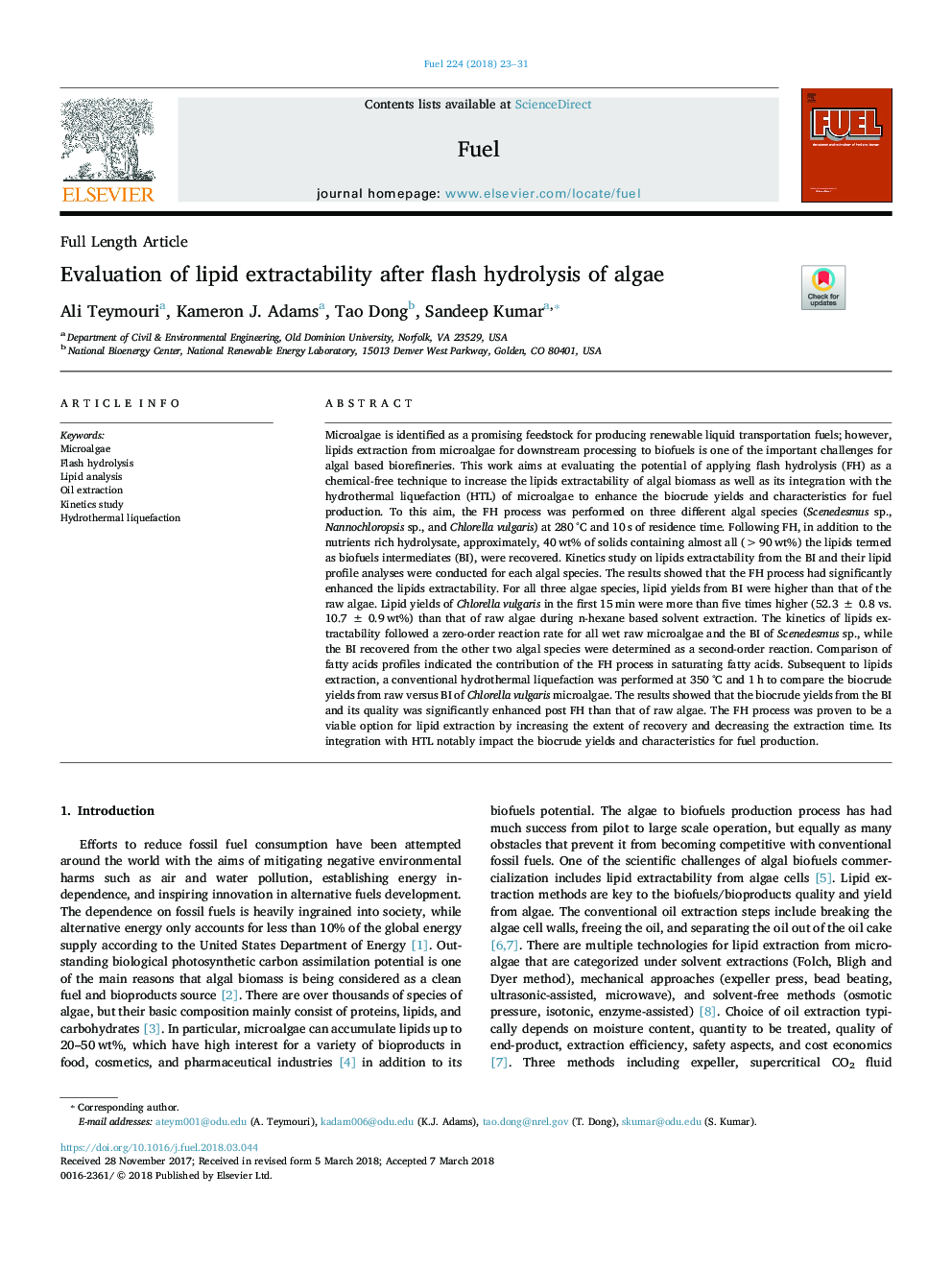| Article ID | Journal | Published Year | Pages | File Type |
|---|---|---|---|---|
| 6631094 | Fuel | 2018 | 9 Pages |
Abstract
Microalgae is identified as a promising feedstock for producing renewable liquid transportation fuels; however, lipids extraction from microalgae for downstream processing to biofuels is one of the important challenges for algal based biorefineries. This work aims at evaluating the potential of applying flash hydrolysis (FH) as a chemical-free technique to increase the lipids extractability of algal biomass as well as its integration with the hydrothermal liquefaction (HTL) of microalgae to enhance the biocrude yields and characteristics for fuel production. To this aim, the FH process was performed on three different algal species (Scenedesmus sp., Nannochloropsis sp., and Chlorella vulgaris) at 280â¯Â°C and 10â¯s of residence time. Following FH, in addition to the nutrients rich hydrolysate, approximately, 40â¯wt% of solids containing almost all (>90â¯wt%) the lipids termed as biofuels intermediates (BI), were recovered. Kinetics study on lipids extractability from the BI and their lipid profile analyses were conducted for each algal species. The results showed that the FH process had significantly enhanced the lipids extractability. For all three algae species, lipid yields from BI were higher than that of the raw algae. Lipid yields of Chlorella vulgaris in the first 15â¯min were more than five times higher (52.3â¯Â±â¯0.8 vs. 10.7â¯Â±â¯0.9â¯wt%) than that of raw algae during n-hexane based solvent extraction. The kinetics of lipids extractability followed a zero-order reaction rate for all wet raw microalgae and the BI of Scenedesmus sp., while the BI recovered from the other two algal species were determined as a second-order reaction. Comparison of fatty acids profiles indicated the contribution of the FH process in saturating fatty acids. Subsequent to lipids extraction, a conventional hydrothermal liquefaction was performed at 350â¯Â°C and 1â¯h to compare the biocrude yields from raw versus BI of Chlorella vulgaris microalgae. The results showed that the biocrude yields from the BI and its quality was significantly enhanced post FH than that of raw algae. The FH process was proven to be a viable option for lipid extraction by increasing the extent of recovery and decreasing the extraction time. Its integration with HTL notably impact the biocrude yields and characteristics for fuel production.
Keywords
Related Topics
Physical Sciences and Engineering
Chemical Engineering
Chemical Engineering (General)
Authors
Ali Teymouri, Kameron J. Adams, Tao Dong, Sandeep Kumar,
